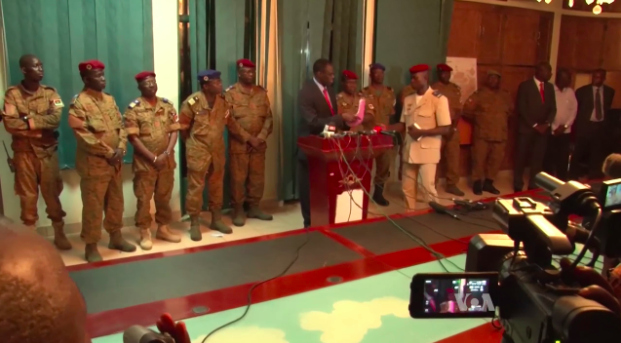By Vihaan Majumdar
The tiny west African nation of Burkina Faso suffered a huge shock on Monday when democratically elected President Roch Marc Christian Kaboré was ousted from power after the military stormed his house on Monday. This has been the latest in a series of military coups in west Africa.
Kaboré had been in power since 2015 but had come under recent public scrutiny for his failure to adequately deal with numerous militant attacks that had displaced 1.4 million people, destabilized much of the country, and killed at least 2,000 people last year. Despite the violence being part of a broader campaign throughout much of west Africa, many faulted Kaboré for the failure to stop it.
The coup came among rising discontent with Kaboré in the military, accompanied by numerous public protests in recent months. Unlike many other coups in the past year, the move to oust Kaboré from power was largely backed by the public, with a large crowd gathering at the main square in the capital to celebrate the coup Monday evening.
The coup was announced on television on Monday, with the military interrupting a program about the fish trade to announce that the government was dissolved, the Constitution suspended, and the borders of Burkina Faso were closed until further notice. Lt. Col. Paul-Henri Sandaogo Damiba, commander of one of the country’s three military regions, was announced as the new leader.
A spokesman gave no indication as to the whereabouts of former President Kaboré, only that he and other civilian leaders had surrendered “without bloodshed” and were being kept in a secure location. Despite this, there are many signs that point to Kaboré and the government putting up a fight. Riot police reportedly fired tear gas at civilian protesters supporting the military.
Despite the jubilation, there are many who remain skeptical of the new government, and who believe that it will be more of the same, despite the change in leadership.

